What is a Branded Title? (6 Types of Title Brands)
In the market for a used car? You may come across listings for vehicles with salvage, rebuilt, or other branded title that are usually lower priced than “clean title” vehicles. But what does a branded title even mean?
This article takes a look at the 6 most common types of branded titles and how different brands can impact safety, value, financing, and insurability so you can make an informed decision when purchasing a secondhand car.
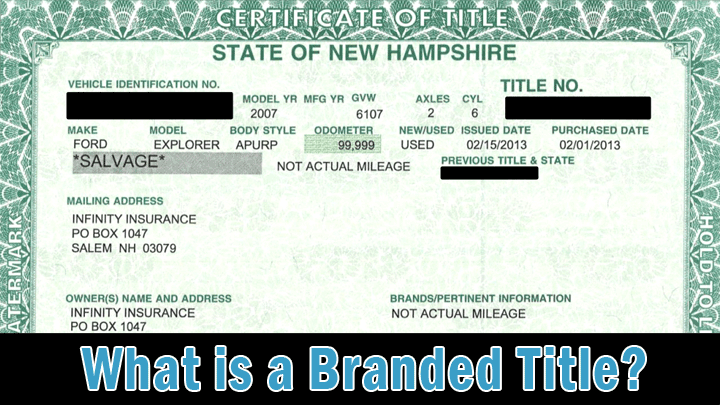
See Also: 20 Life Pro Tips For Car Owners
What Does “Branded Title” Mean?
In the vast majority of cases, a branded title indicates that a vehicle has been previously declared a total loss. There are multiple subtypes of title branding, all of which indicate different forms of prior damage.
While some forms of title branding specify that a vehicle has been previously involved in a severe collision, others designate that a vehicle has suffered from prior flood damage.
Title branding takes place at the state level and is handled by designated government entities. As a result, branding procedures often differ from one state to the next, with some states even utilizing their own specific brands that are not recognized by other neighboring states.
In certain instances, a branded title will specify issues outside of those caused by a wreck or flood damage. This includes lemon-law branding, as well as odometer rollback branding, both of which describe conditions that can adversely affect a vehicle’s value.
Overall, title branding is used to prevent consumers from unknowingly purchasing a vehicle with one or more major issues, which have not been disclosed by the vehicle’s seller. More importantly, title branding prevents sellers from marketing unsafe or compromised vehicles to unsuspecting consumers.
Types of Title Brands
As mentioned above, branded titles come in many different forms, the majority of which carry their own distinct meaning. It is important to understand the difference between these individual “brands” when determining whether or not to make an offer on any vehicle that does not carry a clean title.
The following are several of the most common brands found on used vehicle titles.
#1 – Salvage Title
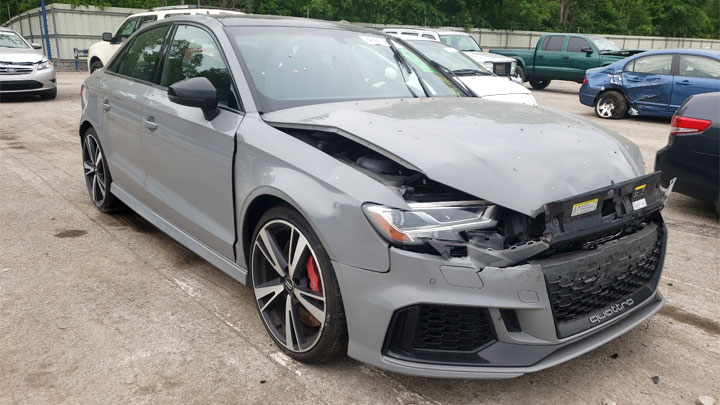
A salvage title indicates that a vehicle has sustained substantial damage, which will cost in excess of a predetermined percentage of the vehicle’s overall value to repair. In most states, any vehicle damaged beyond 75% of its overall value will be given a salvage title. Vehicles of this condition are typically referred to as a “total loss”.
Vehicles carrying a salvage title are not intended for on-road use, as they have been deemed “unrepairable”, from a financial standpoint. Therefore, vehicles in this state are also uninsurable and are valued at only a fraction of their pre-wreck value.
In many instances, vehicles carrying a salvage title are scrapped or parted out, though they can also be repaired and awarded a rebuilt title.
It’s often the case that a vehicle carrying a salvage title will have suffered from some form of frame damage. Damage of this type is not easily repaired and can pose quite a safety risk. A vehicle that has sustained frame damage, should never be driven on any public roadway, before proper repair and thorough inspection.
#2 – Rebuilt Title
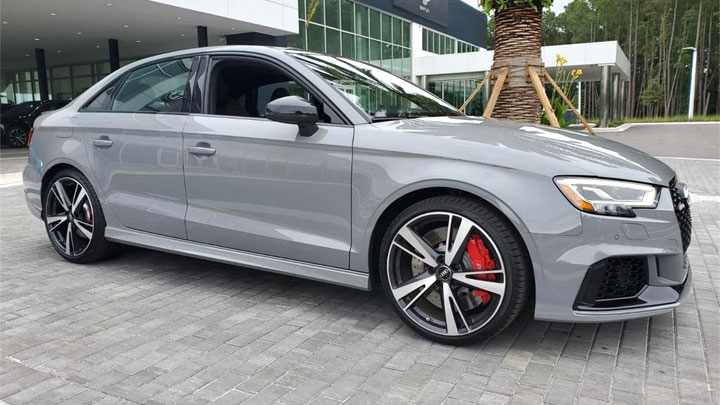
A rebuilt title is awarded to any previously totaled vehicle that has undergone proper repair. In most states, salvaged vehicles must pass a series of inspections, prior to being certified as “rebuilt”. Additionally, a rebuilt title allows a vehicle to be registered, insured, and re-entered into service.
In general, vehicles carrying a rebuilt title are worth significantly less than they would be with a clean title. On average, vehicles in this state are worth only 60%-80% of their pre-wreck value. Though some minor cosmetic issues might be apparent, many rebuilt vehicles are perfectly safe to operate and drive.
A properly repaired rebuilt title vehicle can turn out to be an excellent purchase but extra due diligence is required by prospective buyers looking to get a great deal.
#3 – Water-Damage Title
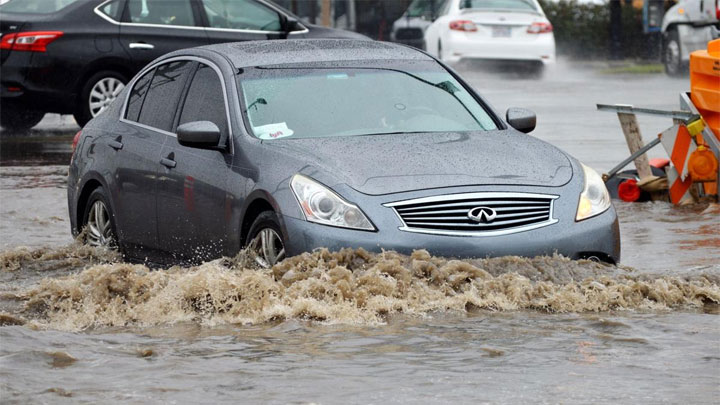
A water damage title is given to any vehicle that has been exposed to floodwaters. Damage of this type can range from minor to quite extensive in severity and can lead to a host of issues including engine and electrical system problems, as well as the development of mold and mildew.
Much like vehicles carrying a rebuilt title, flood-damaged vehicles are worth significantly less than those of the same make with a clean title. On average, water-damaged vehicles are worth 30%-40% less than their pre-flood value.
Buyers should also be aware that many of the issues caused by water damage only become apparent years after flooding has occurred.
#4 – Hail Damage Title
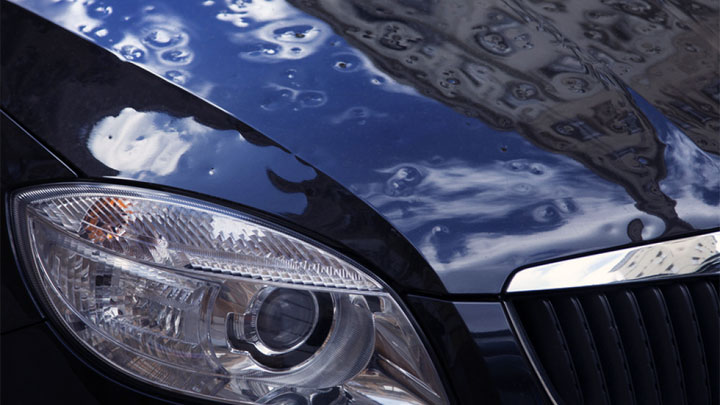
Some states utilize a specialty title brand for hail damage. This brand specifies that a vehicle has sustained significant cosmetic damage at the hands of severe weather-induced hail.
This type of damage is extremely common in many mid-western and southern states, where widespread tornados and hailstorms tend to be quite prevalent.
While the value of any vehicle carrying a hail-damaged title is sure to be adversely affected, this depreciation tends to vary on a case-by-case basis. In many instances, one can purchase a hail-damaged vehicle at a significant value.
#5 – Lemon-Law Title
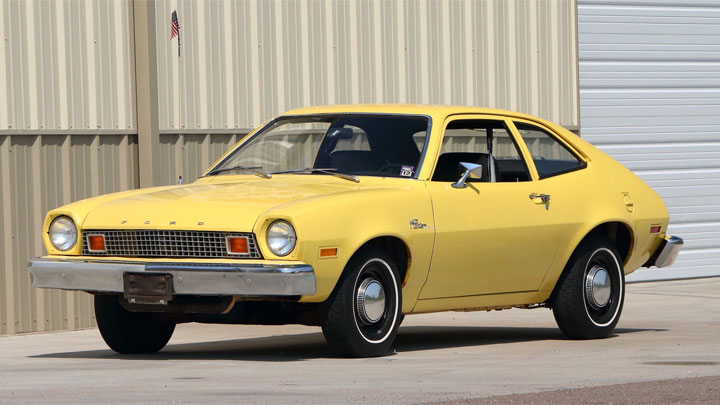
The lemon-law brand is used to protect consumers from unknowingly purchasing vehicles that have been deemed defective beyond practical repair. This brand is applied to a title when a consumer has returned a new car to its manufacturer, or dealer of purchase, after satisfying the demands of a given state’s lemon law.
Vehicles carrying a lemon-law title are worth significantly less than their clean-titled counterparts, though discrepancies in value often differ on a case-by-case basis. Due to the fact that the criteria for lemon-law status vary by state, vehicles carrying a branded title of this type are prime candidates for title washing.
#6 – Odometer Rollback Title
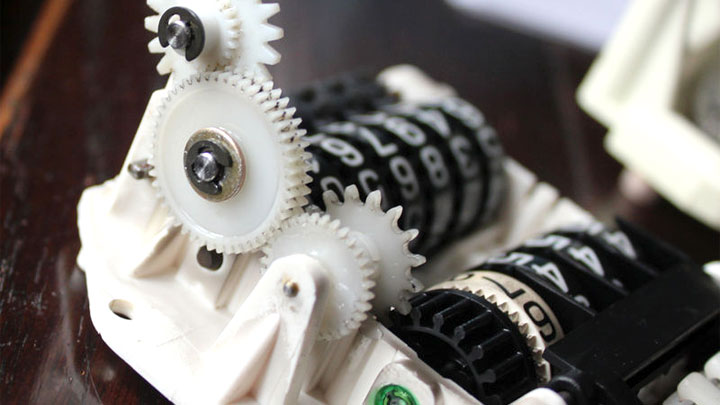
Though rare, vehicles are occasionally given an odometer rollback title. This brand is given to vehicles that have been proven to have more miles than that reflected by their odometer.
The practice of tampering with, or replacing, a vehicle’s odometer is a tactic often employed by dishonest individuals attempting to increase the value of a high mileage vehicle.
Vehicles carrying such a title brand are often sold for a fraction of their clean-title value since their actual mileage is typically unknown. However, many consumers steer clear of these vehicles for this very reason.
Should You Consider Buying a Car With a Branded Title?
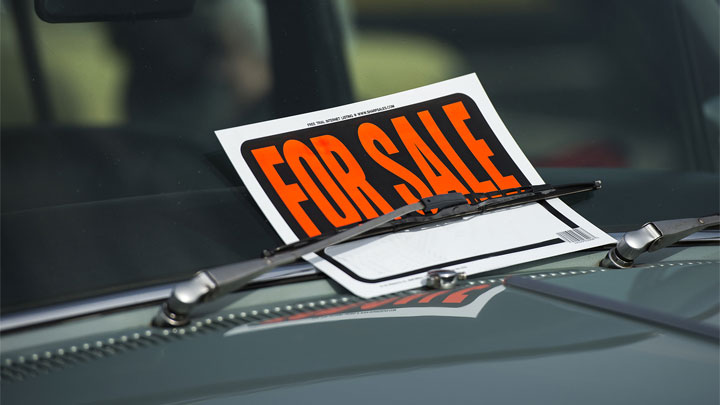
Purchasing a vehicle with a branded title should be considered a roll of the dice. Though a branded title discloses the form of damage that a vehicle has sustained, it does not provide a detailed account of the damage’s severity. This leaves consumers with a multitude of unanswered questions.
For example, a used vehicle with a relatively low pre-wreck value, can suffer only modest damage and still be deemed a total loss. If a vehicle were to be valued at only $2,000, yet require more than 1,500 dollars worth of parts and labor for repair, a salvage title would likely be issued. In such instances, much of the damage sustained could have been purely superficial in nature.
On the other hand, if a late-model vehicle were to be deemed a total loss, requiring $10,000-$15,000 for repair, it would stand to reason that such damage was far more extensive in scope. Therefore, a salvage title does not always clearly illustrate the extent of damage that has been suffered.
Likewise, a water-damaged title does little to indicate the severity of damage that a vehicle has sustained. Many water-damaged titles originate in areas where hurricanes have made landfall, and flooding has been widespread.
However, by policy, many insurance companies total the bulk of vehicles located in a flood zone following a hurricane, rather than inspecting each car within the area.
As a result of this practice, some vehicles carrying a water-damaged title have suffered very little in the way of actual flood damage. In many instances, such vehicles will have been exposed to no more than a few inches of flood water, while others might have been completely submerged.
One is best to only purchase a vehicle with a branded title if they are personally aware of the vehicle’s back story. In these instances, a consumer is able to make an informed buying decision, free of the unanswered questions that typically accompany a branded title.
Does a Branded Title Affect Insurance?
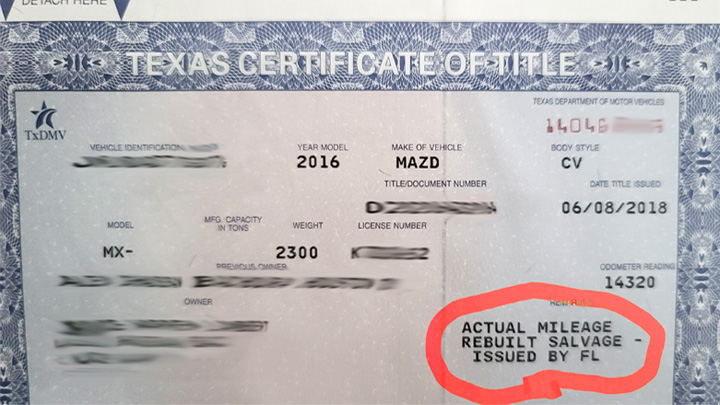
Full-coverage insurance is seldom offered for vehicles that carry a branded title, though the specifics of this matter tend to differ from one insurance provider to the next. However, most vehicles that carry a title indicative of road-worthiness (rebuilt, remanufactured, etc.) can still be covered by a general liability policy.
Vehicles carrying a salvage title cannot be insured, due to the fact that they have been deemed a total loss. As a result, such vehicles are not intended to be legally operated on any city, county, state, or federally-managed roadway, in their current state.
Following adequate repair and proper inspection, most vehicles carrying a salvage title can be awarded a rebuilt title, making them eligible for liability coverage.
Will Banks Finance a Branded Title?
Many banks will not provide financial backing for the purpose of purchasing a vehicle with a branded title. This is due to the many unknowns that surround a vehicle of this status.
Banks attempt to protect their investments, by only loaning money on purchases worthy of the initial loan amount.
Some banks in particular areas of the country will still finance the purchase of vehicles with branded titles if a buyer meets all additional criteria and is capable of satisfying the terms of the loan. However, many loans of this nature carry higher than standard interest rates, in order to leverage a bank’s position in such dealings.
Additionally, there are a number of third-party lenders dedicated to financing purchases of this type. Again, many of these loan agencies charge higher than average interest rates to satisfy the terms of such transactions.
Does a Branded Title Void the Factory Warranty?
In almost every case, the branding of a title will void a vehicle’s factory warranty. This is because the vehicle in question has been deemed non-viable for repair or future on-road use, in its current state.
In most cases, the repair of such vehicles will also require the replacement of numerous components, some of which may not be from the vehicle’s OEM supplier. This, in itself, often serves as a disqualifying factor for future warranty claims.
In general, those looking to secure a warranty for a vehicle with a branded title will find themselves facing an uphill battle. However, some third-party sources do offer limited warranty programs for vehicles in this state, though their required premiums tend to be quite costly.
Can a Branded Title Be Removed?
In most instances, a branded title is non-removable and will follow a vehicle throughout the remainder of its service life. However, the status of a title’s “brand” can often be modified, following proper repairs. While a vehicle might be given a salvage title following a wreck, the same vehicle will often be awarded a rebuilt title when such damage has been rectified.
In the past, some automotive dealers and independent sellers have used a process known as “title washing” to remove a title’s brand. This practice is generally regarded as dishonest in nature, as it exposes discrepancies between the titling processes of multiple states, to hide information from unsuspecting consumers.
The practice of title washing involves selling a previously branded vehicle in a state with different regulatory oversight, which in turn, allows the title’s brand to be dropped from record. This is done to maximize a vehicle’s value, at the expense of the consumer.
- Car Temperature Gauge Stopped Working? (Here’s Why) - Apr 15, 2024
- Ignition Coil vs Coil Pack (What’s the Difference?) - Apr 8, 2024
- Windshield Wipers Won’t Turn Off? (Causes and What to Do) - Apr 5, 2024
